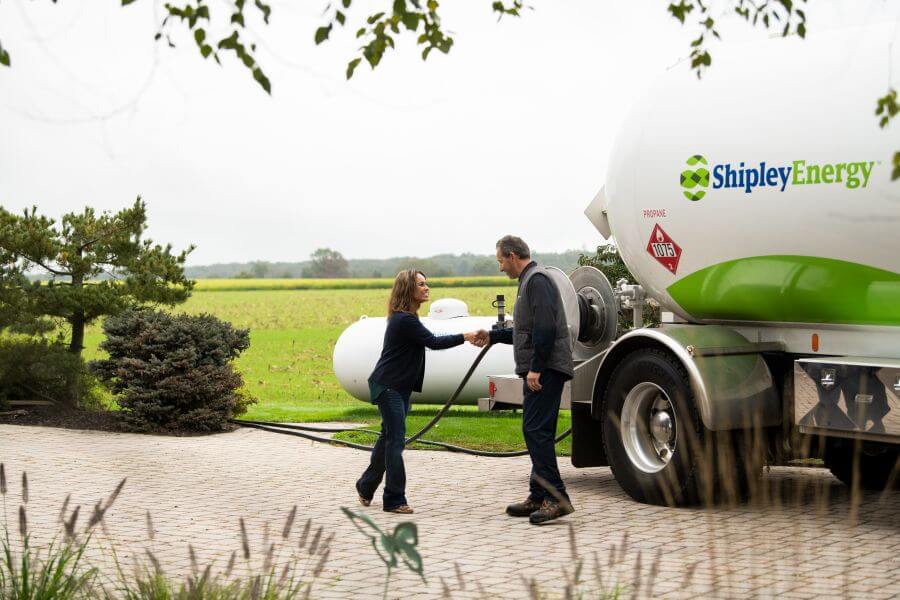
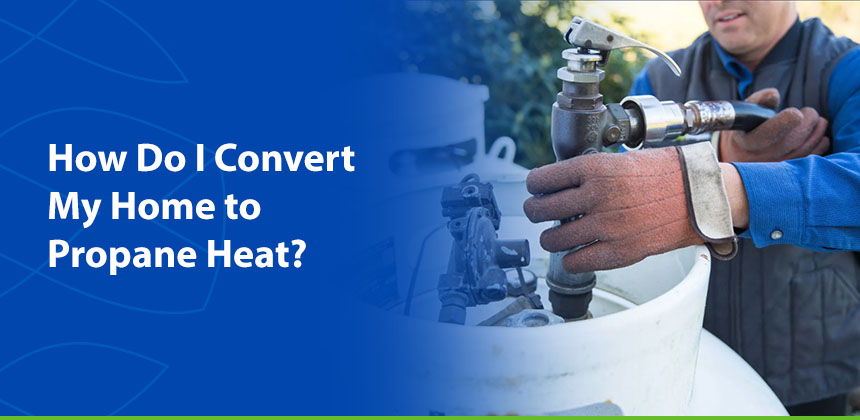
Your heating, ventilation, and air conditioning (HVAC) system is one of the most essential parts of your home. Extreme hot or cold temperatures can impact you and your loved one’s comfort and health, so a reliable HVAC system will keep you safe and comfortable. Propane can also keep your home warm in the event of an outage caused by a winter storm.
Propane is becoming a popular choice among many homeowners, and some people wonder how to convert their home energy to propane. Below, we’ll guide you through the benefits of converting to propane, how you can use it to power your other appliances and how to start the process.
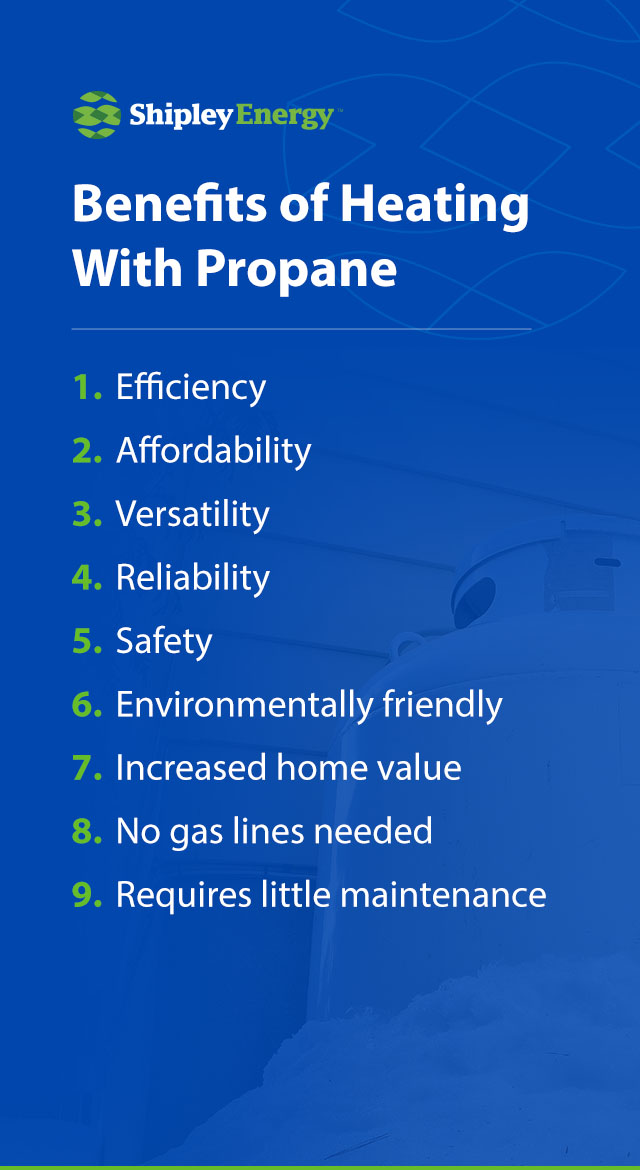
The growing popularity of propane is because of its numerous benefits. Some of the benefits of propane include:
As you can see, propane has numerous benefits that you and your family can enjoy.
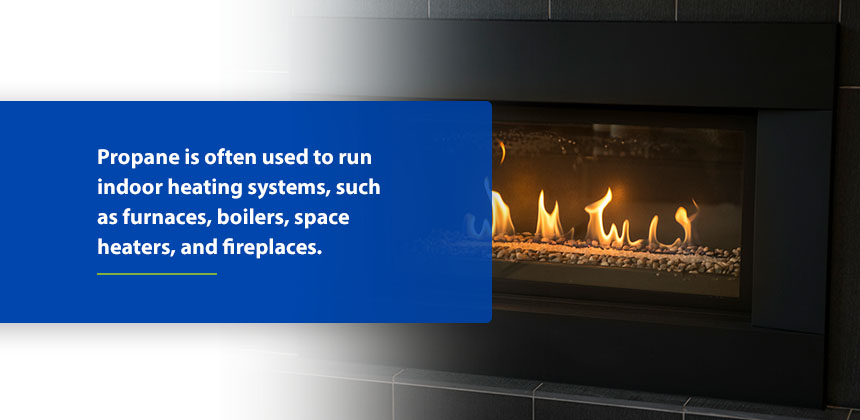
Propane is often used to run indoor heating systems, such as furnaces, boilers, space heaters, and fireplaces. Using propane to heat your home provides steady heat and optimal temperature control. You and your loved ones can rely on propane to keep you warm and safe during the winter season.
However, propane can go far beyond indoor heating. Propane can be used to power other appliances in the home, and many homeowners are making the switch for this reason. Some of the appliances that propane can power include:
The versatility of propane is part of its appeal. It can power many appliances in your home while saving you money. Electric may seem appealing initially, but it doesn’t provide optimal power to your appliances and can leave you wanting. Choosing propane and basking in its many benefits will leave you wondering why you hadn’t made the switch sooner.
If you’re trying to determine whether you should make the switch to propane, it’s essential to consider all of the facts so you know what to expect. Below are some of the crucial considerations of converting to propane.
Depending on what heating system you currently have, your switch to propane can be a simple or extensive process. For example, your conversion process will be easy if you have an existing forced-air system. You’ll most likely only have to account for the furnace and installation.
Alternatively, the conversion process will be more complex if you have an electric or boiling system. You may not have existing ductwork, which propane relies on to power your appliances. Ductwork will need to be installed by a professional, and a professional will need to run a heat-loss calculation to determine the best place for the ductwork. All of the ducts and vents must be installed before your furnace.
Heat-loss calculations and duct or vent installations can be costly, so you’ll want to determine whether the conversion is worth it. Another option you have is to install ductless mini-split heat pump units, which will reduce your conversion costs significantly.
If you aren’t sure what system you have at the moment, you can contact your contractor to determine this information.
There are many reasons to switch to propane, such as its versatility, low costs, and increased efficiency. Whatever your reason, switching to propane has a few requirements.
Propane tanks are a must for propane energy. These can be buried underground or placed on either side of the home. Your tank will need to be at least 10 feet away from an opening or entrance, a source of ignition, and your property line. If you’re using propane for energy every day, you’ll want to choose a 500-gallon tank, or larger, to accommodate your needs.
Once you have your tank, you’ll need to get in contact with your local propane supplier to schedule refills. You don’t want to run out of fuel when you need it most. You can set up an automatic delivery schedule or monitor your fuel levels and call when to book an appointment when it’s time for your next refill.
Another factor to consider is the availability of propane in your area. Propane is made from natural gas and petroleum, meaning it’s readily available when you need it. There are thousands of propane suppliers across the United States, and many of these suppliers will deliver propane on a consistent schedule. Some suppliers also offer emergency services so that you can receive propane deliveries during winter storms or if you unexpectedly run out.
Part of the appeal of propane is that it doesn’t rely on gas lines to power your appliances. People in rural areas convert to propane for this reason if they don’t have it already. You can determine where your nearest propane supplier is by conducting thorough research. You should look for a supplier that offers various service plans to accommodate your individual needs. Some propane suppliers will even perform annual inspections and maintenance, so your propane equipment functions efficiently.
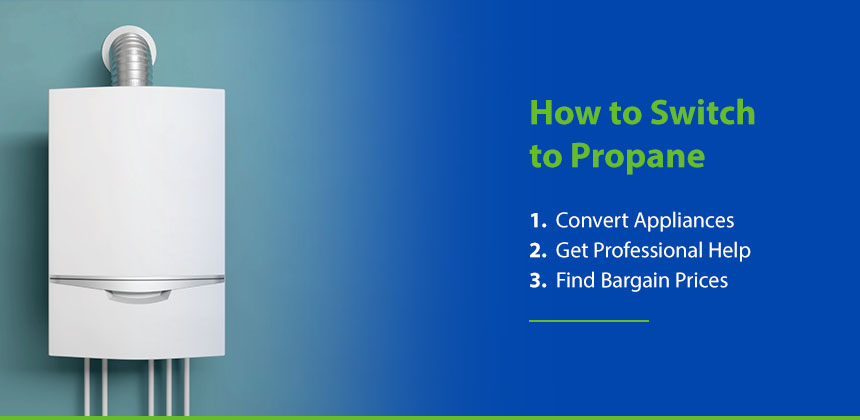
Now that you’ve decided to make the switch to propane, there are a few steps you should follow to make the process as easy as possible.
Many of the appliances you already own are designed to work with natural gas and propane. If you’re switching from natural gas to propane, the conversion is simple but requires new gas fittings. The manufacturer should have included these fittings when you first made the purchase. If you can’t find these fittings, you can contact the manufacturer, and they should send them to you.
However, some of the appliances you have won’t run on propane. If you want to convert these appliances, you may need to replace them with compatible versions.
If you’re unsure how to convert your appliances, you can contact a professional gas company to help. A professional can get the job done quickly and efficiently.
A professional technician can also evaluate your current system and recommend where to begin. Once you’ve started the conversions, your gas company will also help with your tank installation. Your tank can be installed underground if you’re looking to save outdoor space.
Once your tank is installed, you can install a propane furnace. If you already have existing ductwork, the installation process will be simple. If not, a professional can make the proper recommendations to get you started.
This is also an excellent time to plan your refill schedule. You can enroll in an automatic refill schedule, so you never have to think about scheduling an appointment in the future. You can also monitor your fuel levels on your own and schedule a refill appointment when you start to run low.
When switching to propane, you want to make sure you’re getting the best price. Propane is already an affordable energy source, but you want to make sure you’re getting the most out of your purchase right at the beginning.
Converting to propane in the winter will cost you the most money. Rented propane tanks are usually delivered and filled to the top after installation. Propane prices in the winter are highest since there is an increase in demand. The best time to convert to propane is mid-summer when propane prices are at their lowest. You’re also more likely to get an appointment with a propane supplier during this time since winter is usually the busy season.
Converting to propane can provide comfort and stable energy for your home. At Shipley Energy, we’re committed to delivering power that you can depend on.
We have technicians available 24/7 every day of the year, so you can always rely on us to provide service when you need it most. Our customer service is unparalleled, with knowledgeable and friendly staff members prepared to answer all of your questions.
We have multiple service plans available to fit your budget, no matter what energy source you use. Get in touch today to learn more about what we offer and how we can help convert your home to propane energy.